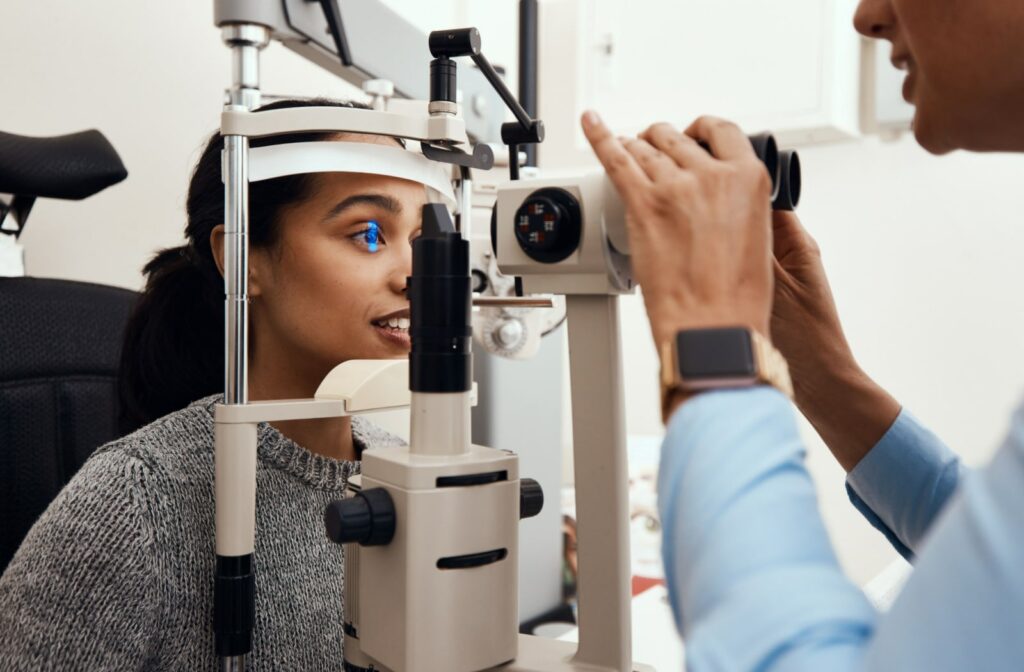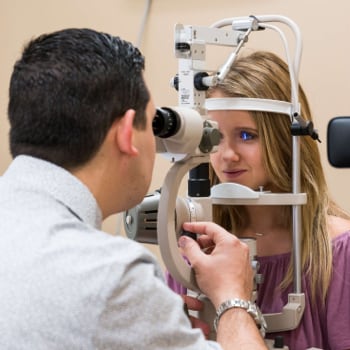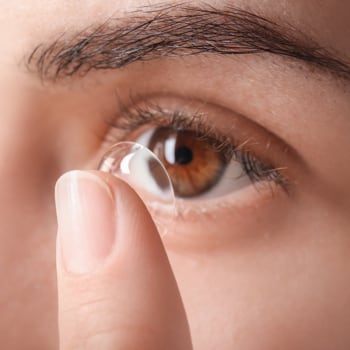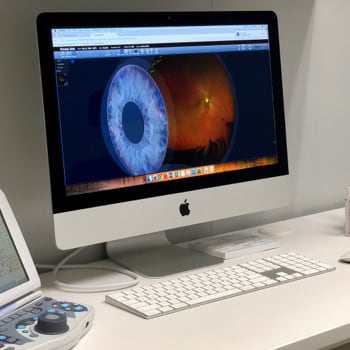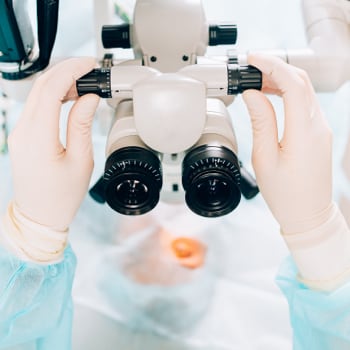For many, the free feeling of clear vision without wearing eyeglasses is a reality thanks to contact lenses. But just as you need an eye exam to update your glasses prescription and assess your eye health, you need a contact lens exam to check fit and function.
A contact lens exam and evaluation can check your candidacy for contact lenses and help you find the right contact lens for your eye health and vision needs.
Understanding Contact Lenses
Before diving into the process of a contact lens exam, it’s helpful to understand what contact lenses are. These thin, curved lenses rest on the film of tears over your cornea (the clear front part of the eye) and help refract light as it enters your eye to provide clear vision.
Contact lenses provide a wider field of view compared to glasses. They are as close as you can get to the natural state of unaided vision while enjoying the benefit of visual correction.
You can get soft and hard contact lenses. These contact lenses can be single-use or disposable and come in daily or extended wear. Specialty contact lenses are also available to fix specific vision problems or treat eye conditions. Your eye doctor will help you choose lenses based on your personal needs.
The Importance of Contact Lens Exams
Most contact lens wearers are familiar with yearly contact lens exams, but it’s easy for life’s distractions to push these appointments off your calendar. However, a contact lens exam isn’t just about checking your vision; it’s a crucial health assessment for your eyes, focusing specifically on the challenges and changes that may occur from wearing contact lenses.
This evaluation helps you find contact lenses that maximize your vision and prevent issues like dry eyes, corneal abrasions, infections, and more serious conditions that could affect your long-term eye health.
Preparing for a Contact Lens Exam
Most contact lens appointments require some preparation. Bring your current contact lenses and any contact lens boxes or packets you have so the doctor has a history of what contact lenses you have worn in the past.
Additionally, consider any questions about your current lens experience or concerns about changes in your eye or vision health. It’s also a good idea to bring a list of any medications you take, as they can impact your eye health.

What Happens During a Contact Lens Exam?
A contact lens exam includes a comprehensive exam, a consultation to discuss your medical history, eye history, and lifestyle preferences, and tests to determine your candidacy for contact lenses and the prescription.
A contact lens exam, like a standard eye exam, also evaluates your eye health. This exam can include examining your cornea and other eye structures for signs of infection, inflammation, or abrasions.
Contact lenses come in various sizes and materials, meaning one size does not fit all. Your eye doctor will precisely measure your cornea with non-invasive technology to find the right curve and diameter for your lenses, which is essential for comfort and efficacy. Afterward, they will conduct tests to determine the strength and type of contact lenses that will provide you with the sharpest vision.
Caring For Your Contact Lenses
If you wear contact lenses, you’ll need to care for them for a comfortable contact lens experience. Here are some contact lens hygiene tips:
- Wash your hands: Before handling your lenses, always wash your hands with soap and water to prevent transferring dirt, oil, or bacteria onto your lenses and into your eyes.
- Follow the wear schedule: Whether you have daily disposables or monthly lenses, stick to the recommended wearing schedule. Daily lenses should be disposed of after one use, while monthly lenses need cleaning and storing each night.
- Use the right solution: When you clean and store your lenses, use the solution recommended by your eye doctor. Never use water or saliva to clean your lenses, as it can lead to eye infections.
- Clean and rinse: After removing your lenses, gently rub them with solution to remove any protein or debris buildup. Rinse them thoroughly with a fresh solution.
- Store properly: Store your lenses in a clean contact lens storage case filled with fresh solution. Replace your case regularly to prevent bacterial growth.
- Avoid water exposure: Remove your lenses before swimming or showering to avoid exposing them to water. Water, whether it’s from a pool, tap, or hot tub, can affect the polymers of the lens and introduce harmful bacteria that increase the risk of infection.
- Replace on schedule: Follow your eye doctor’s recommendations for replacing your lenses. Wearing lenses beyond their recommended lifespan can increase the risk of eye irritation and infection.
- Regular exams: Keep up with your regular eye and contact lens exams to monitor your eye health and check your prescription.
- Listen to your eyes: If you experience any discomfort, redness, or changes in vision while wearing your lenses, remove them immediately and consult your eye doctor. Sometimes taking a break for a few days is helpful.
Find the Right Contact Lenses for You
A contact lens exam is about more than renewing your supply of lenses. It’s a comprehensive review of your eye health so that you can enjoy the benefits of contact lens wear without compromise.
To determine your candidacy for contact lenses, book an exam at Great Hills Eye Care today. We have locations in Georgetown, Pflugerville, and North Austin.

